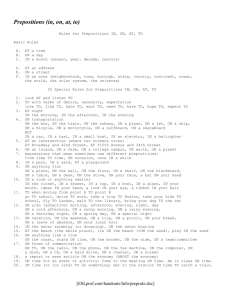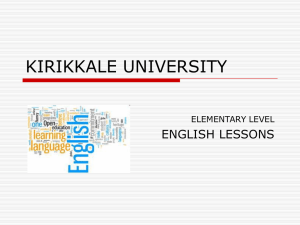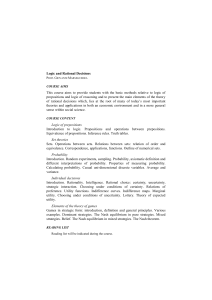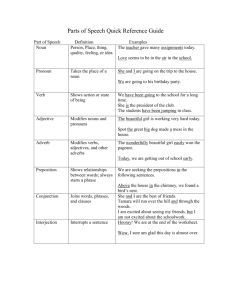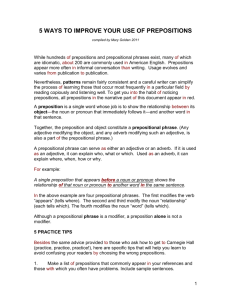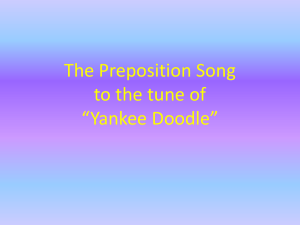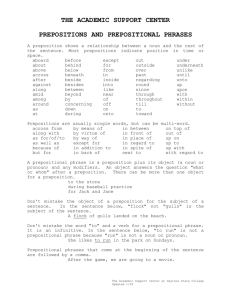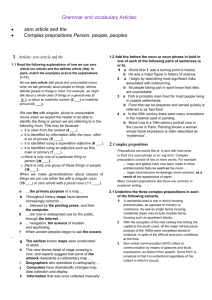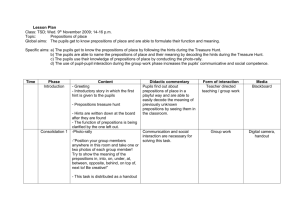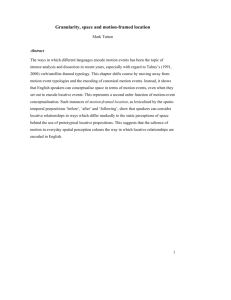Prepositions in bilingual acquisition
advertisement
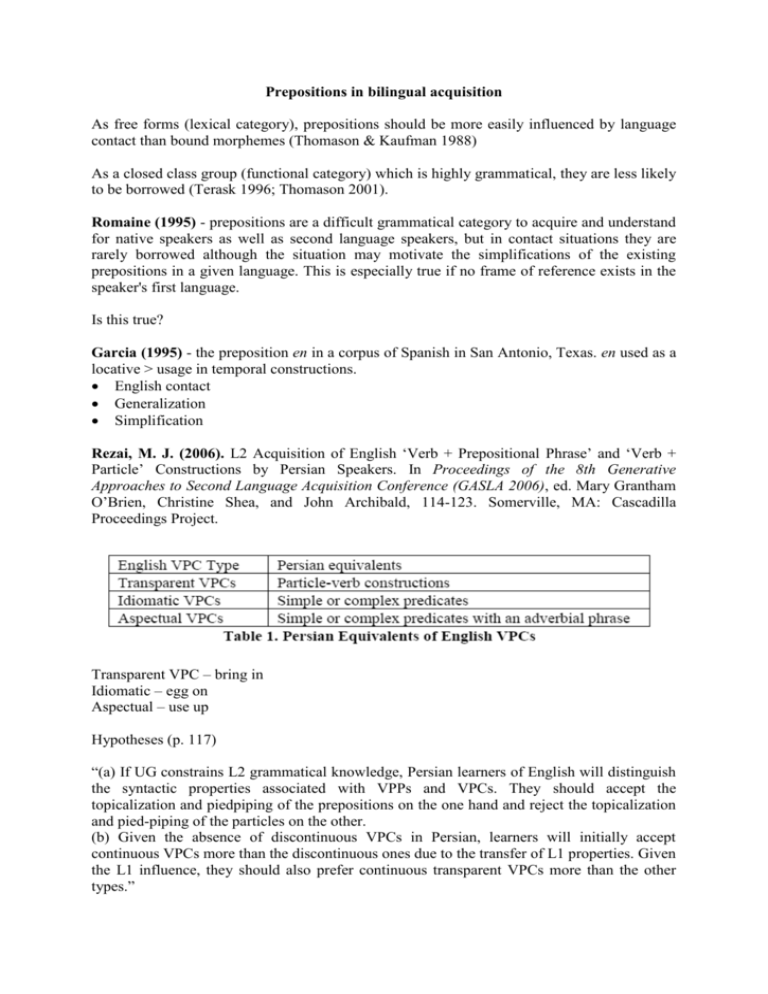
Prepositions in bilingual acquisition As free forms (lexical category), prepositions should be more easily influenced by language contact than bound morphemes (Thomason & Kaufman 1988) As a closed class group (functional category) which is highly grammatical, they are less likely to be borrowed (Terask 1996; Thomason 2001). Romaine (1995) - prepositions are a difficult grammatical category to acquire and understand for native speakers as well as second language speakers, but in contact situations they are rarely borrowed although the situation may motivate the simplifications of the existing prepositions in a given language. This is especially true if no frame of reference exists in the speaker's first language. Is this true? Garcia (1995) - the preposition en in a corpus of Spanish in San Antonio, Texas. en used as a locative > usage in temporal constructions. English contact Generalization Simplification Rezai, M. J. (2006). L2 Acquisition of English ‘Verb + Prepositional Phrase’ and ‘Verb + Particle’ Constructions by Persian Speakers. In Proceedings of the 8th Generative Approaches to Second Language Acquisition Conference (GASLA 2006), ed. Mary Grantham O’Brien, Christine Shea, and John Archibald, 114-123. Somerville, MA: Cascadilla Proceedings Project. Transparent VPC – bring in Idiomatic – egg on Aspectual – use up Hypotheses (p. 117) “(a) If UG constrains L2 grammatical knowledge, Persian learners of English will distinguish the syntactic properties associated with VPPs and VPCs. They should accept the topicalization and piedpiping of the prepositions on the one hand and reject the topicalization and pied-piping of the particles on the other. (b) Given the absence of discontinuous VPCs in Persian, learners will initially accept continuous VPCs more than the discontinuous ones due to the transfer of L1 properties. Given the L1 influence, they should also prefer continuous transparent VPCs more than the other types.” Subjects: Persian-English L2 learners Task: Grammaticality Judgment a. He paid her debt off. 1. 2. 3. 4. 5. b. He paid off her debt. Only a is right Only b is right Both right Both wrong Don’t know Findings Armon-Lotem, Danon and Walters (2008) Subjects: Sequential bilinguals English-Hebrew 4-6 Method: Spontaneous samples Findings: Locative PPs, headed by free prepositions > other PPs Almost no obligatory prepositions Relatively few errors in the use of prepositions, all of which due to code interference. Shimon 2008 Subjects: Sequential bilinguals English-Hebrew 4-6 Method: Sentence recall Figure 15a. O-preposition errors in English 10% 12% 6% 4% 2% 2% 3% 2% 2% 0% 0%0%0% CI CS 0% TD 8% ETD 6% HTD 4% 1%1% 0% TD ETD HTD 0%0%0% 0%0%0% 1% 0% 0% CS omissions with CI omissions subs. no CI no CI 0% 0% 5% CI Figure 15d. F-preposition errors in Hebrew 6% 7% 4% 4% 4% 6% 3%3% 3% 3% 0% 5% 2% omissions omission no subs.no CI with CI CI Figure 15c. O-preposition errors in Hebrew 1% 1% 6% 5% 2% 0% 2% 2% 10% 10% 8% 8% 4% Figure 15b. F-preposition errors in English 11% 12% TD 2% ETD HTD 4% ETD 2% 0%0%0% 0%0%0% 0%0%0% 0%0%0% CI CS omissions with CI omissions no CI 0% 0% 0%0%0% 0%0%0% 0% TD HTD 3% 1% 1% 5% 4% 5% 3%3% subs. no CI
